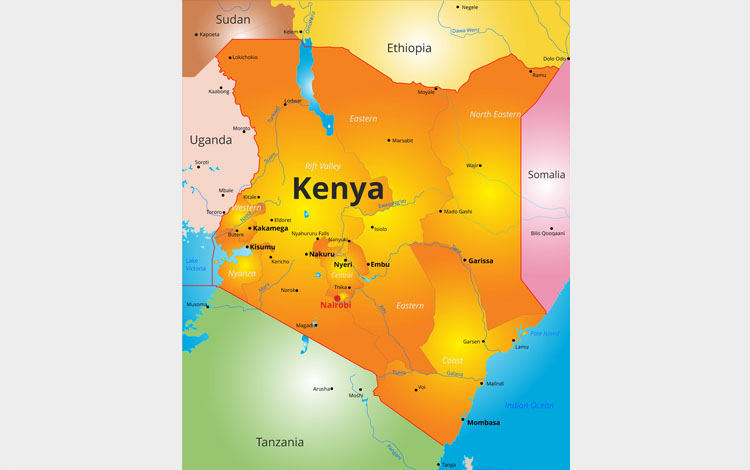It is the common Christian belief that everyone is born with an original sin-passed from Adam and Eve. Something more tangible has surfaced now and that is about born with a debt, which is not the opposite terminology for born with a silver spoon since the latter is more axiomatic while former is more of an approximation based on averages.
An example would make things clearer. It is believed that every child born in Kenya owes a debt of US$ 1300 to the lenders of the country, be they multilateral organizations like IMF or World Bank, or corporations in China or the US or other sundry creditors.
Vectors would make things clearer. Kenya has a population of 47.5 million, only a minuscule compared to populations in India or China, where one state or province would have as much or more population. What makes Kenya unique is its debt of close to US$ 50 billion, which, if divided among its population, would work out to a per capita debt of US$ 1300, a huge overhead for a country of that size and level of development. The curious thing is that there is going to be no respite from this burden since that country has a declining population that would pull the average upwards. Significantly, at the current level, Kenya’s debt is 15 per cent above the recommendations set for developing countries by the International Monetary Fund (IMF). The average would be still more if one considers the current annual borrowing to retire matured loans, finance infrastructure and to meet other budgetary expenditures, which according to some estimates is pegged at US$ 2 billion annually. Will the tax burden reach an unsustainable level?
While the risk of economic decline is staring at Kenya, the government has come out with some innovative measures to beef up the treasury and to stem the rot. One of them is selling citizenship. To put it more succinctly, one of the revenue-generating measures of the debt-ridden country would be selling passports, permanent residencies, special visas and clones of such residency permits.
To be fair to Kenya, it is not the only country, which has resorted to this practice. A supreme example is the US, the melting pot of cultures, ethnic minorities and the like have been doing it in one form or the other for long. The origin of L1 visa common in the US is a clone for attracting talented businessmen, who have the capacity to invest in the country. It is easier for those who opt for such visa to get citizenship in the US by investing a fixed quantum of money, which in turn create gainful employment to many. This facility is being taken advantage of by citizens of countries like China, India, Europe, and the Gulf region.
Will the Kenyan gambit pay off? It has stipulated Sh 200,000 will be charged for a passport, which is not substantial. The added attraction is that those who are opting for this type of passport need not have to stay in Kenya all the while. They can hold on to the original citizenship of their home country. The expectation is that the Indians and Chinese may top the list of people opting for dual citizenship along with rich businessmen from other parts of Africa. They have substantial business interests in Kenya and can leverage a citizenship to avail many of the liberal tax facilities being extended by the country not only for investing there but also for availing many other fringe benefits that are attached to the citizenship, such as benefits that may accrue to an African stemming from the recently formed free trade zone – AfCATA. There can be cash flows in terms of investing in land and housing since some of the people who are going to opt for dual citizenship already have their residence permits, which enabled them to have large investments in sectors like education, health, hospitality, and manufacturing. A few additional dollars will not make any difference to them if the facilities that can come with it are attractive and give value for the money.
But if one is a devil’s advocate, there can be a few flip sides also in the policy. Kenya is not the only country that offers this facility. The US, Caribbean countries etc also provide these facilities. The other question that is asked by many is: what is the guarantee that other countries in Africa including its close neighbors of Kenya do not adopt this strategy to beef up their investments. One has to wait and watch the impact of the policy for some time before sitting on the judgment.





